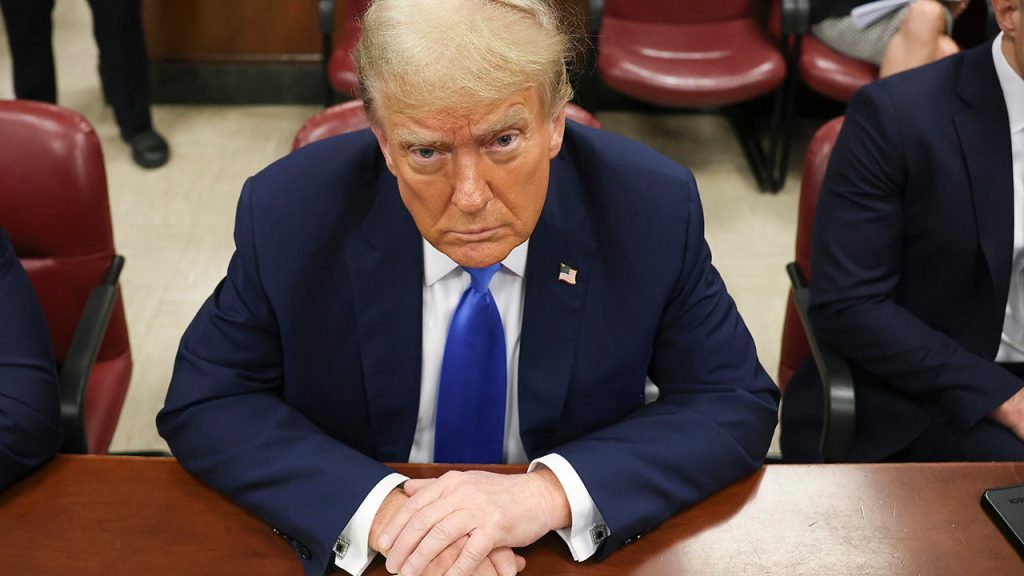In the ongoing criminal trial of former President Donald Trump, Judge Juan Merchan has implemented a restrictive gag order that has added complexity to the legal proceedings. Trump is prohibited from discussing witnesses, the jury, members of the district attorney’s staff, and more, except for Manhattan District Attorney Alvin Bragg himself. The gag order has been expanded to include Trump from speaking about family members of the judge. Trump’s legal team has appealed the gag order, arguing that it is unilateral and creates a conflict of interest for Merchan.
The Appellate Division has granted Trump’s legal team an expedited briefing timeline for appealing the gag order, with a deadline for both sides to file their briefs in May. Both sides of the appeal are currently sealed to the public, but sources indicate that the Appellate Division is moving more quickly than usual. Trump’s lawyers have contended that the gag order unfairly applies only to him and not other witnesses, such as Michael Cohen, who has made negative comments about Trump publicly. They have also argued that Merchan’s daughter and other individuals are potentially profiting from the trial, creating a conflict of interest.
Some legal experts, such as law professor Gregory Germain, believe that if the issue reached the Supreme Court, the gag order would likely be overturned. The Supreme Court would likely be concerned about limiting a presidential candidate’s free speech during an election, particularly when it restricts comments on well-known witnesses and the political nature of the trial. The situation may escalate to a constitutional crisis if Merchan imposes jail time for Trump’s contempt of the gag order. If that were to occur, there could be an emergency petition to the Supreme Court.
Trump campaign spokesperson Steven Cheung has spoken out against the gag order, calling it unconstitutional and un-American. The issue remains in the hands of the Appellate Division, which will ultimately decide whether to uphold or overturn the gag order. The division may choose to send the order back to Merchan with specific limitations, particularly surrounding threats of violence or lawlessness. Merchan and Trump remain at odds over the gag order, with potential consequences looming if the situation is not resolved. The legal battle over the gag order in Trump’s trial continues to be a point of contention and tension in the ongoing legal proceedings.


